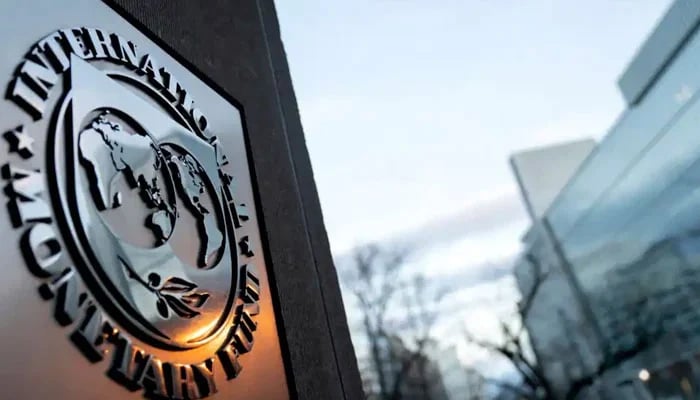IMF team spells out how Pakistan can overhaul tax system
IMF recommends FBR make substantial changes to Income Tax Law 2001 and harmonize GST on both goods and services
ISLAMABAD: The International Monetary Fund (IMF) technical team has finalised its recommendations for overhauling Pakistan’s taxation system, including proposing financial autonomy for the Federal Board of Revenue (FBR), introducing stringent requirements for the integrity of tax officers, and bringing retailers, agriculture income and real estate into the tax net.
The IMF recommends that the FBR make substantial changes to the Income Tax Law 2001 and harmonize the General Sales Tax (GST) on both goods and services. The visiting IMF team also held discussions with the provincial tax authorities and recommended increasing taxation on agriculture income, GST on services, and property taxes to fully utilize the real potential of tax collection by the federating units.
The technical team’s recommendations finalised in the discussions could become the structural benchmark of the ongoing or new IMF programme. It remains to be seen how many recommendations will be included in the next IMF programme. The IMF’s technical team is scheduled to conclude its visit to Pakistan on Friday (today) and will share an aide-mémoire with FBR high-ups summarising the discussions held between the two sides over the last two weeks.
There might be some ‘surprises’ for the FBR in the aide-memoire of the IMF, suggesting a major overhaul of the taxation machinery by granting autonomy to the FBR to remove the influence of political masters. It would be recommended by the IMF, and the chairman of FBR/ secretary of Revenue Division might not need approval from the Finance Ministry to move any summary to the Prime Minister’s Office.
The FBR’s policy division and operation for both Customs and Inland Revenue Service (IRS) would be separated. “The autonomy for FBR will be recommended by IMF in its report,” said the official, adding that the Integrity Management Unit (IMU) might be recommended to operate at full swing.
Regarding policy recommendations to increase the tax-to-GDP ratio, the IMF is set to recommend that the FBR introduce schemes for retailers and wholesalers to bring them into the tax net.
The FBR high-ups informed the IMF team that agriculture income was the domain of provinces, and they could help them in collecting agricultural income tax if the board was authorised to collect the due taxes on their behalf and then return the amount after deducting nominal fees.
The IMF is also exploring the possibility of decreasing the number of income tax slabs for salaried and non-salaried classes in the upcoming budget. On real estate, the IMF has asked the FBR to increase valuation rates at both the provincial and FBR levels to reduce the difference between the FBR-notified rates and market rates.
On the GST front, the IMF has recommended harmonising GST on goods and services, with one portal in place for filing GST returns every month instead of filing five different returns at federal and four provincial tax authorities. Regarding the establishment of IMU, one former official said the FBR had established such a vigilance unit in December 2005 but abandoned it in 2008. The IMU was established in 2014-15 and again in 2018-19, but it was never pursued vigorously.
The IMF also asked the FBR to increase the tax-to-GDP ratio, as the fund staff recently estimated that the FBR’s tax collection could reach Rs10.997 trillion for the next financial year 2024-25, compared to the desired target of Rs9.415 trillion for the ongoing financial year 2023-24, ending on June 30, 2024.
-
 Yerin Ha On Carving Her Own Path As 'Bridgerton' Season 4's Lead
Yerin Ha On Carving Her Own Path As 'Bridgerton' Season 4's Lead -
 Michael J. Fox Receives Praise From 'Shrinking' Season 3 Co Stars
Michael J. Fox Receives Praise From 'Shrinking' Season 3 Co Stars -
 Jacob Elordi Reveals Getting Burned During 'Wuthering Heights' Filming
Jacob Elordi Reveals Getting Burned During 'Wuthering Heights' Filming -
 Prince Harry Loses The Last Of Prince William’s Sympathy? ‘He Left London Entirely’
Prince Harry Loses The Last Of Prince William’s Sympathy? ‘He Left London Entirely’ -
 Macaulay Culkin Pens Emotional Tribute To 'Home Alone' Mum Catherine O'Hara
Macaulay Culkin Pens Emotional Tribute To 'Home Alone' Mum Catherine O'Hara -
 Rob Cesternino Shares Learning Essential Skills During Time On 'The Traitors'
Rob Cesternino Shares Learning Essential Skills During Time On 'The Traitors' -
 South Carolina Teen Arrested After Altercation With Mother Outside High School
South Carolina Teen Arrested After Altercation With Mother Outside High School -
 Estranged Husband Kills Wife In Florida Murder-suicide Hours After Leaving Jail
Estranged Husband Kills Wife In Florida Murder-suicide Hours After Leaving Jail -
 Kylie Kelce Plays Coy Over Travis, Taylor Swift Wedding Plans: 'Not Gonna Lie'
Kylie Kelce Plays Coy Over Travis, Taylor Swift Wedding Plans: 'Not Gonna Lie' -
 US Opens Civil Rights Probe Into Alex Pretti Shooting: Report
US Opens Civil Rights Probe Into Alex Pretti Shooting: Report -
 Prince William, Kate Middleton Decide Next Step For Prince George
Prince William, Kate Middleton Decide Next Step For Prince George -
 Catherine O’Hara: Home Alone Actress Dies After 'brief Illness'
Catherine O’Hara: Home Alone Actress Dies After 'brief Illness' -
 Princess Anne Refuses An Offer Made At Palace
Princess Anne Refuses An Offer Made At Palace -
 'The Rookie's' Mekia Cox Reveals Her Daughter's Debut In Season 8
'The Rookie's' Mekia Cox Reveals Her Daughter's Debut In Season 8 -
 King Charles Faces Challenge Over 'disgraced' Andrew's New Home
King Charles Faces Challenge Over 'disgraced' Andrew's New Home -
 Bianca Censori 'tried' To Walk Away 'a Number Of Times' From Kanye West Marriage: Source
Bianca Censori 'tried' To Walk Away 'a Number Of Times' From Kanye West Marriage: Source




